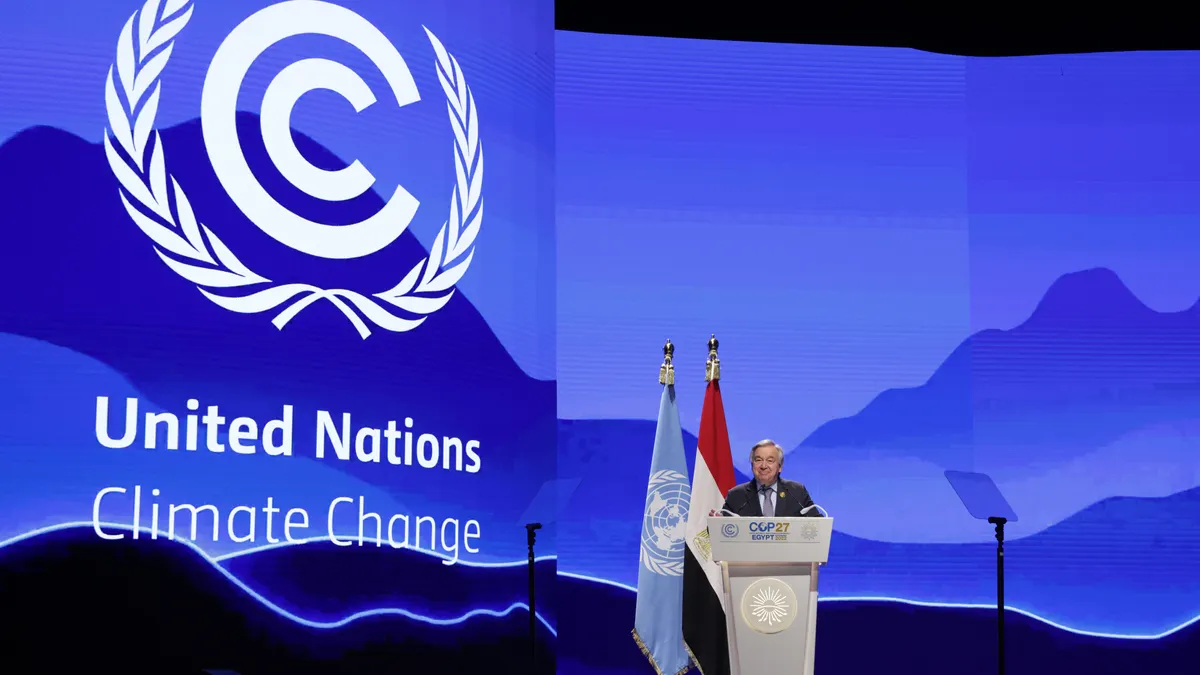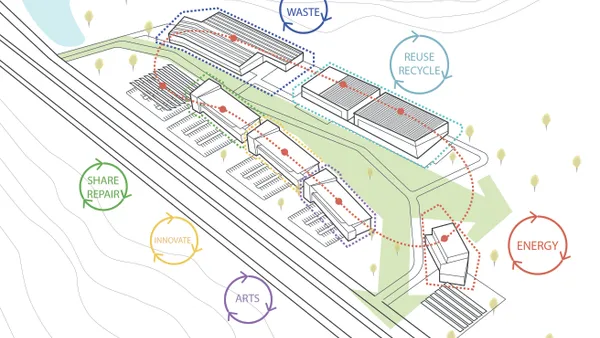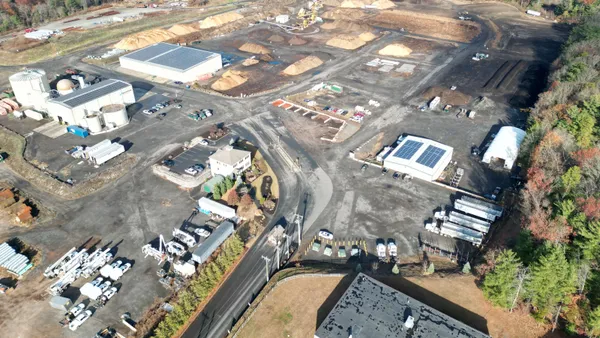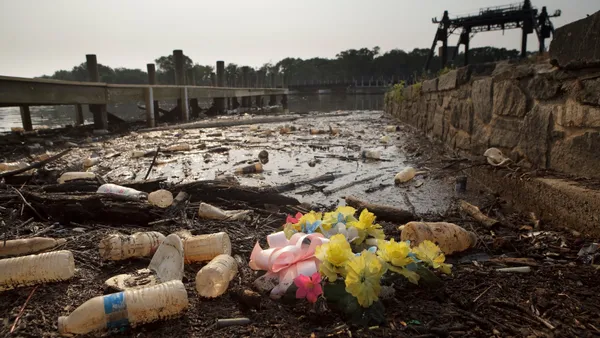Dive Brief:
- Global leaders called for public and private entities to adopt policies reducing global waste and promoting circularity in speeches during the United Nations’ first International Zero Waste Day on Thursday.
- U.N. Secretary-General António Guterres cited research from U.N.-Habitat, that found that the world generated 2.4 billion tons of MSW in 2018 and could near 4 billion tons of MSW by 2050 without intervention.
- “We are making a mess of our world. It's time to clean up. Let us work as one to build a circular, zero waste future for people and planet,” Guterres said in an address before the U.N. General Assembly in New York.
Dive Insight:
The first International Zero Waste Day was an opportunity for world leaders to encourage greater producer responsibility for creating recyclable products and global investment in municipal waste infrastructure.
Guterres said the world needs to “massively invest” in public recycling infrastructure while “polluters themselves must take the lead” in designing less resource-intensive, more recyclable goods.
“Waste is a killer of people, of our planet, of our natural resources and ecosystems, of economies which lose billions each year from waste, and [yet] the gobs of garbage keep growing,” he said.
Turkish First Lady Emine Erdoğan spearheaded efforts to launch the day to share best practices on and advocate for zero waste strategies in the U.N. last year. The resolution creating the day was ultimately adopted by the General Assembly on December 14. It also called for the creation of a three-year advisory board of experts to promote local and national zero-waste initiatives through U.N.-Habitat and the U.N. Environment Program.
Erdoğan thanked the 105 countries, of which the United States was not a party, that cosponsored the resolution and called for countries that have contributed most to waste and environmental problems to take on a greater share of responsibility for introducing zero waste policies.
“We live in such a world where we send our waste to the least-developed countries believing that the garbage we don't see is actually harmless,” Erdoğan said. “These piles of waste not only pollute the environment but also create a new version of colonialism.”
The first lady has sought to capitalize on Turkey’s Zero Waste Project, which launched in 2017, and turn it into a global movement. In her speech, she said 650 million tonnes of raw material were conserved and 4 million tonnes of greenhouse gas emissions were avoided through the program.
Other countries and independent organizations seized on the day as a moment to promote key priorities. A letter circulated by the Global Alliance for Incinerator Alternatives, and signed by more than 200 organizations across dozens of countries, called for a reduction in disposable products of all forms and local control over a circular economy. Co-signatories included the Alliance of Mission-Based Recyclers, the Plastic Pollution Association and Greenpeace.
“We are faced with triple planetary crisis — climate change, pollution and loss of biodiversity — which is threatening our survival on earth,” Joshua Amponsem, a climate program specialist with the U.N., said in a statement announcing the letter. “For many communities, zero waste is pivotal to building resilience against climate risk and achieving sustainable socio-economic systems.”
The organization also called for an end to waste incineration “in all forms,” including cement kilns and chemical recycling.
U.N.-Habitat Executive Director Maimunah Mohd Sharif, who assisted in spearheading efforts around zero waste, also called out producers and rich nations. “The developed world produces one third of all waste generated although it is only 16% of the global population,” Sharif said during her speech before the General Assembly.
Sharif noted that during her time as mayor of Penang, Malaysia, she partnered with schools and other public institutions to increase the recycling rate from 15% to 56%. As the head of U.N.-Habitat, she’s also developed the Waste Wise Cities program which assists with data collection, best practices and project finance support.
She said the program was part of a broader effort to shift mindsets and encourage more policymakers to think of waste as a resource.
“It all starts with an individual mindset change,” Sharif said. “The vision of zero waste may be daunting, but it is also incredibly inspiring.”














